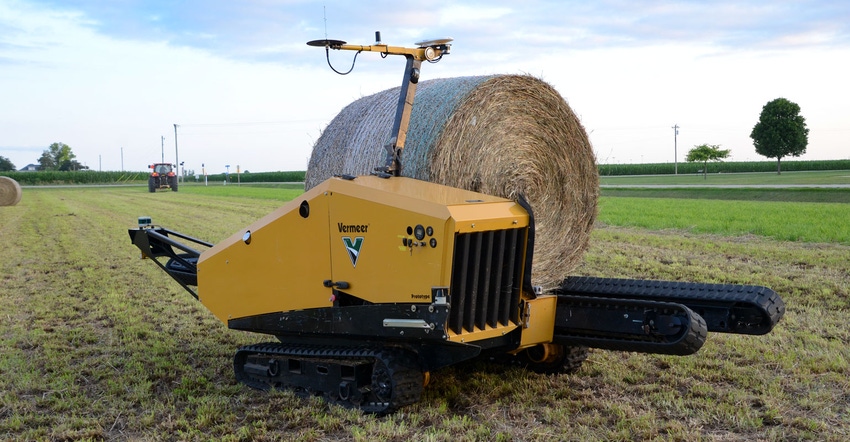July 23, 2021

Recently, I talked with John Buckley, CEO of Wilbur-Ellis, a $3 billion private holding company that’s carved itself a solid niche in ag technology. We talked for the “Around Farm Progress” podcast. One issue we discussed was that the number of private companies celebrating 100 years is small. So how do you get to be 100?
Buckley discussed the resilience a company needs to keep moving — the willingness to change, or invest, to meet the market. And that can be important.
Just a few days before that talk, I was invited to a private showing of some new technologies at Vermeer. This private company has long been working to build a business that will be around past 100 years, and current family members are dedicated to that goal.
Sitting in a conference room having breakfast with family members of founder Gary Vermeer was fascinating. Jason Andringa, grandson of the founder, is now president and CEO, taking the reins of the company from his mother, Mary, a few years ago.
Back then, there was a great conversation about the dangers of the third generation taking over a company. For farmers in their fifth or sixth generation, that may be a surprise, but in the private-company world, that third generation often challenges the future of the business.
Not so at Vermeer. This company is hyper-aware of how decision making needs to be taken on in an objective way to keep a company going.
The company is turning to innovation as an area of opportunity. And while there’s plenty of innovation in its mining, boring and diversified industrial businesses, Vermeer has also made a name for itself with the ZR5-1200 self-propelled round baler.
How do you top that? How about a robot bale handler?
The early look Farm Progress got for that machine has garnered a fair amount of attention online, even though it won’t be on the market for some time. Yet it’s an opportunity for Vermeer to show its innovative side, and going public means further testing can ensue. Innovation sometimes means opening the doors so others can see inside. The Vermeer family is making that part of the corporate culture.
Labor still drives decisions
The irony of the Bale Hawk automated bale handler is the need to solve an ongoing problem of agriculture: labor. Gary Vermeer knew that 50 years ago when he produced the first commercial round baler. It was a labor shortage that drove him to meet a local farmer’s need to make hay.
The labor problem isn’t going away, and in fact, it has evolved not only from a numbers issue but also from an operational one. Even if you can find able-bodied people to run a machine, they may not have the skill set that was so easy to find in the past.
Related: Vermeer reveals future tech haytools
That pushes machine designers to develop new ways for a machine to do most of the work, and the human in the cab to be the driver. For example, Vermeer is testing an autosteering system for the ZR5-1200 that guides on the windrow. It doesn’t need GPS, and you always know what you’re going to bale.
And it was pretty easy for me to use. Sitting in the cab with Vermeer’s Kent Thompson, who designs equipment that doesn’t exist in the market, I joked that the machine was so easy that even an ag journalist could run it. But that’s what it’s going to take. Perhaps that’s a new test for me at events: If I can run it, the machine is ready for prime time. Would we call it the “Willie Seal of Approval”? Ah … no.
You May Also Like




